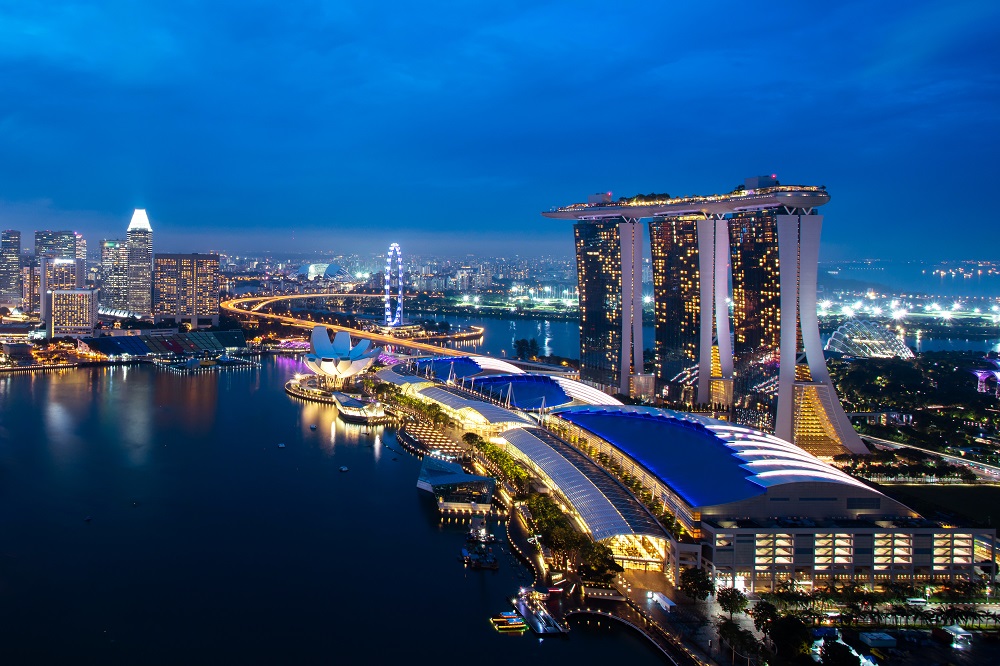
About Course
This course provides a comprehensive overview of low-carbon buildings, focusing on their significance for sustainable development goals with an emphasis on the engineering aspects of building design and operation.
It covers the latest trends, technologies, and best practices in building design, construction, and operation for low carbon buildings. The course also explores the role of building materials, construction techniques, and engineering systems in achieving low-carbon buildings. Various strategies, technologies, and approaches for reducing greenhouse gas emissions in areas such as HVAC, electrical services, water resources, and indoor air quality will be discussed. The challenges, opportunities, and engineering solutions for low-carbon buildings in different contexts will be examined, along with an exploration of the policies, regulations, and incentives associated with low carbon buildings. The new SIT Punggol campus, home to two super low energy buildings, will be used as a living lab to demonstrate the best-in-class energy-efficient buildings.
Who Should Attend
Prerequisites
Basic understanding of the design, construction, and operation principles of building energy systems
Learning Outcomes
- Understand the latest trends, technologies, and best practices in building design, construction, and operation for energy-efficient and sustainable buildings
- Evaluate energy efficiency strategies, sustainable building design, green materials, renewable energy systems, indoor environmental quality, and building automation systems
- Apply principles and methods to analyse, design, and operate energy-efficient and sustainable buildings
- Utilise tools to assess the environmental impact and life cycle analysis of building materials and products
- Conduct a building energy and sustainability audit and identify opportunities for improvement
Upon completion of the course, learners will be able to:
Gain a comprehensive understanding of net-zero building principles, including design and construction strategies
Learn about building automation, energy management systems, and indoor environmental quality control
Explore sustainable water management, material usage, and advanced energy-efficient technologies
Understand performance metrics, building audits, and analysis to optimise efficiency
Acquire knowledge and skills to evaluate building performance
Learn the competency to identify areas for improvement and implement strategies that maximise building sustainability and occupant comfort and health in a net-zero energy and carbon context.

The course will be delivered through a combination of lectures, interactive discussions, hands-on exercises, and case studies. The delivery method will emphasise active participation and group activities to facilitate learning. Learners will also be provided with course materials and additional resources such as recommended readings, online resources, and case studies to enhance their understanding and skills.
Teaching Team

Er. Dr. Lock Kai Sang
Professor, Engineering, Singapore Institute of Technology

Steve Kardinal Jusuf
Associate Professor, Engineering, Singapore Institute of Technology

Zhao Mingshan
Assistant Professor, Engineering, Singapore Institute of Technology

Soh Chew Beng
Assoc Professor/Deputy Cluster Dir, Engineering, Singapore Institute of Technology

Joseph Loh
Vice President, Business and Operation of G-Energy Global Pte Ltd

Kevin Sturrock
Director, DP Lightning Pte Ltd

Er. Leow Yock Keng
Principal Manager, Green Mark Department (Environmental Sustainability Group), Building and Construction Authority

Dr. Lal Jayamaha
Founder & CEO, LJ Energy Pte Ltd

Gerry Wee Hwee Joon
Associate Vice President, Estates, Singapore Institute of Technology

Ho Chee Kit
Chief Engineer and Net Zero Carbon Director, Cushman & Wakefield
Course Details
Schedule
Day 1
Topic: Introduction, green materials, sustainable design and construction
| session | Topic |
|---|---|
| Morning session 1 | Introduction to energy efficient and sustainable buildings
|
| Morning session 2 | Sustainable building design
|
| Afternoon session 1 | Super low energy buildings
|
| Afternoon session 2 | Sustainable construction and green material
|
Day 2
Topic: HVAC systems and indoor environmental quality
| session | Topic |
|---|---|
| Morning session | Efficient HVAC systems
|
| Afternoon session | Indoor environmental quality
Pathways to net-zero carbon
|
Day 3
Topic: Energy Efficient Lighting and Sustainable Building Services
| session | Topic |
|---|---|
| Morning session | Light – Visual Planning & Design for Low Carbon & WELL Buildings
|
| Afternoon session | Energy efficient electrical services
Building Energy Management System (BEMS)
|
Day 4
Topic: Renewable Energy Systems, Smart Technologies, and Site Visit to Net-Zero Building
| session | Topic |
|---|---|
| Morning session | Renewable energy systems and emerging technologies
|
| Afternoon session | Learning from site visits to SIT sustainable Punggol Campus buildings and facilities
|
Day 5
Topic: Building energy/sustainability audit, and class assessment
| session | Topic |
|---|---|
| Morning session | Energy/sustainability performance measurement and verification
|
| Afternoon session | Class assessment & debriefing
|
Certificate and Assessment
A Certificate of Attainment will be issued to participants who:
- Attend at least 75% of the course
- Undertake and pass non-credit bearing assessment during the course
Participants who meet the attendance requirement but do not pass the assessment will receive a Certificate of Participation.
Assessment Plan
Learners will be assessed based on their engagement, participation, and successful completion of an energy/sustainability evaluation report.
Fee Structure
The full fee for this course is S$5,450.00.
| Funding Category | Eligible Funding | Course Fees Payable After Funding |
|---|---|---|
| Singapore Citizen (Below 40) | 70% | S$1,635.00 |
| Singapore Citizen (Above 40) Funded under SkillsFuture Mid-Career Enhanced Subsidy (MCES) | 90% | S$635.00 |
| Singapore PR / LTVP+ Holder | 70% | S$1,635.00 |
| Non-Singapore Citizen | Not Eligible | S$5,450.00 |
Note:
- All fees above include GST. GST applies to individuals and Singapore-registered companies.
Course Runs
New Engineering Micro-credentials Launching Soon!
Exciting news! We are introducing new micro-credentials in Electrical and Electronic Engineering & Infrastructure and Systems Engineering. Be among the first to know by registering your interest today! Register now →
